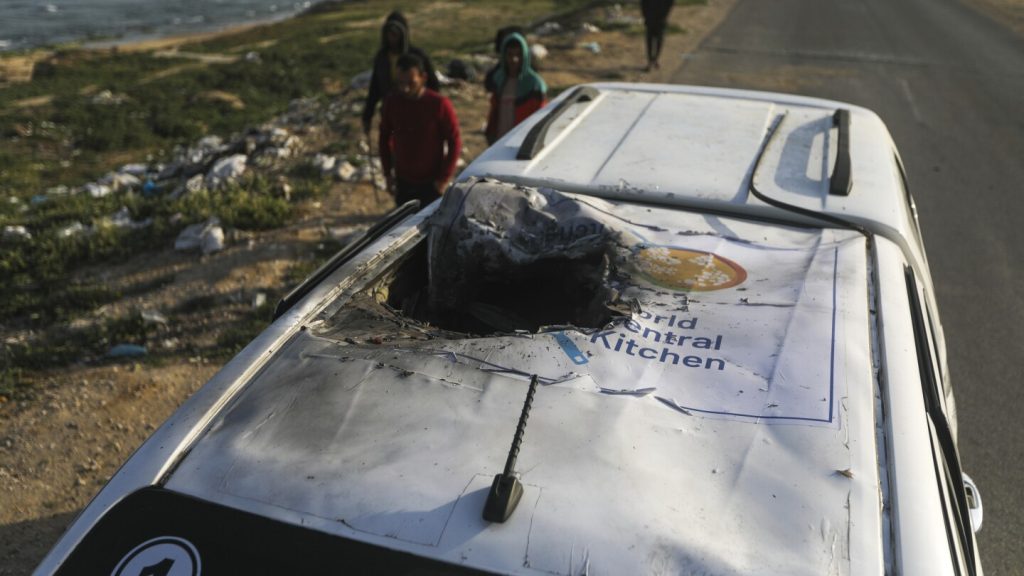Israel’s military chief has apologized for a deadly Israeli strike that killed seven aid workers in Gaza, describing it as a “grave mistake” resulting from a misidentification in complex conditions. The preliminary investigation results were announced by Lt. Gen. Herzi Halevi, who expressed remorse over the killings and stated that an independent body would conduct a thorough investigation to be completed in the coming days. The incident has prompted outrage from Israel’s closest allies, including the U.S., Britain, Poland, Australia, and Canada, leading to calls for answers from Israel and a pause in humanitarian aid deliveries to Gaza.
The deaths of the World Central Kitchen workers in Gaza have had far-reaching implications, with multiple charities suspending food deliveries and aid operations in the region due to safety concerns. The loss of the workers, who were hit by airstrikes, has jeopardized efforts to open a maritime corridor for aid from Cyprus to help alleviate the dire conditions in northern Gaza, where famine is imminent. The incident has also raised questions about Israel’s bombing practices and disregard for civilian casualties, as well as its restrictions on humanitarian aid and the use of food as a weapon.
Israeli Prime Minister Benjamin Netanyahu acknowledged the “unintended strike on innocent people” and pledged to investigate the incident to prevent similar tragedies in the future. The World Central Kitchen charity, founded by celebrity chef José Andrés, had coordinated with the Israeli military for the movement of its vehicles, which were targeted in the strikes. The group’s logo was visible on the vehicles, indicating they were humanitarian workers, yet they were still hit by multiple strikes, leading to the deaths of the aid workers from various nationalities.
The backlash from Israel’s allies, including diplomatic rebukes, calls for humanitarian pauses, and demands for accountability, could increase pressure on Israel to address the situation in Gaza. The government’s actions, including the apparent targeting of Iran’s consulate in Damascus and the shutdown of a foreign media outlet, have raised concerns about its handling of conflicts and the impact on civilian populations. The deaths of aid workers have further strained relations with humanitarian organizations and the U.N., complicating efforts to provide essential assistance to vulnerable populations in Gaza.
The ongoing war in Gaza has resulted in a significant number of civilian casualties, with over 32,900 Palestinians killed, the majority of whom are women and children. The conflict, which began with Hamas-led militants’ attack on southern Israel, has escalated into one of the deadliest and most destructive offensives in recent history. The strikes on aid workers and civilians underscore the challenges faced by humanitarian organizations in delivering aid in conflict zones and the urgent need for accountability and oversight to prevent further tragedies. The international community’s response, including diplomatic actions and calls for accountability, will be crucial in ensuring the safety and well-being of civilians and aid workers in Gaza.


